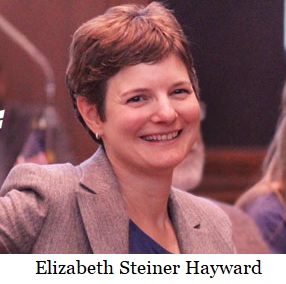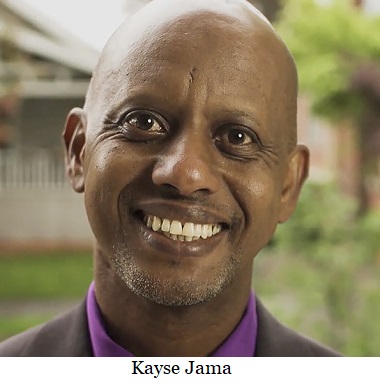 Post an Event
Post an Event
| Benton County Republicans’ Private Fundraising Event, “Bent-on Boots and Bling” with Trey Taylor |
| Friday, September 5, 2025 at 5:00 pm |
| Featuring Trey Taylor
Music Private Event
Friday, September 5, 2025 5:00-5:30 pm VIP Reception
5:30-8:00 pm Heavy Appetizers,
Auction, Concert
Red: $750 VIP Reception
Front Row Table Sponsor
White: $500 Table Sponsor
Blue: $50 per person
Limited Seating. Get Yours Now!!!
Support Local
Dress up: Bling, Cowboy, Patriotic Benton County Republican
FUNDRAISER
www.BentonGOP.org
Get your tickets today at:
https://www.bentongop.org/event-details/benton-county-republicans-fundraiser/form
About Trey:
Trey is the youngest African American Man in Country Music History. The Denver Post wrote
"It's impossible to miss his enthusiasm. With a fondness for cowboy boots, gaudy colors and dazzling jewelry, Trey Taylor could stand toe to toe with any of the Pop, Country or even Rap
contemporaries of his generation.“ |
| Trysting Tree Golf Club, 34028 NE Electric Rd., Corvallis |
The final report would answer whether the state’s response to the virus was effective
A bill directing OHA to select a private consultant to evaluate Oregon’s public health response to the COVID-19 epidemic is moving.
SB 1554 passed the Oregon Senate 17 to 9 on a straight party-line vote Feb. 28th. Four Senators were excused from voting, three Republicans and one Democrat. Senators Elizabeth Steiner Hayward (D-Portland) and Dennis Linthicum R-Klamath Falls took views as divergent as the urban/rural divide they represent concerning
SB 1554. Senator Steiner Hayward’s views are expressed in the After Action Report she co-authored.
The After Action Report would investigate the COVID-19 response across several levels of engagement to identify areas for improvement, make recommendations, and capture key lessons learned. Critics are concerned that the report may be used to justify controls on the freedom of citizens in future declared emergencies.
SB 1554 includes a General Fund appropriation of $899,573. The final report is to be submitted no later than September 1, 2023.
Oregon has the least popular Governor in the nation for many reasons. Among those are the arbitrary closing of many businesses plus severe mask and vaccination mandates implemented by OHA under her direction in response to the COVID pandemic. A consultant selected by OHA under the Governor’s direction could interpret history in technical terms favorable to the Governor. This is an election year and Democrats fear the worst based on early polling. A report on the Kate Brown administration’s response would be too late technically to affect the November 2022 general election, but it would be a convenient way to deflect criticism of shutdowns and mandates during campaign season.

Steiner Hayward reasons we need this study to know how we could save lives in future emergencies. Her focus is on evaluating how the various agencies made use of their funds, coordination between various government departments, equity in outcomes and public-private partnership effectiveness.
Senator Dennis Linthicum (R-Klamath Falls) thinks a study could be useful but sees this bill as one seeking answers to the wrong questions. He questions the value in quantifying government’s role without qualifying the impact it had on those tens of thousands hurt by shutdowns and mandates that adversely affected businesses and schools.
The survey would require input from state and local agencies, hospitals and medical providers, businesses, schools and individuals. Concerns arise over the objectivity in reports from individuals and organizations dependent on public funding for their livelihoods.
The final report would seek to answer whether or not the state’s response to the virus was effective. OHA reports nearly 700,000 people contracted the disease, more than 27,000 were hospitalized and 6,582 died, reportedly all due to COVID-19 and not underlying conditions.
A D V E R T I S E M E N T

A D V E R T I S E M E N T
Defenders of the OHA response point out that Oregon fared better Than Oklahoma and Kentucky, two states of similar size. Compared to those states, Oregon’s number of cases and deaths are nearly half. How Oregon compared to those states in mental health outcomes is not mentioned.
The post-pandemic era is upon us. A study of the wide variety of actions and outcomes taken by many different countries on six continents could be a useful tool in directing future responses to virus outbreaks. Sweden allowed citizens the freedom to act responsibly without controls. Australia mandated citizens stay in their homes and followed up with strict enforcement. Poor nations didn’t vaccinated because of cost and many achieved enviable results using affordable therapies banned in many developed countries including the U.S. Deaths and injuries to all age groups brought about by vaccines gets sparse attention by the legacy media. The actions of the FDA and CDC were questioned in Congressional hearings. Agency transparency remain a major concern by many in Congress.
--Tom Hammer| Post Date: 2022-03-02 11:45:57 | Last Update: 2022-03-02 12:03:24 |
Spending on disadvantaged individuals, families, businesses and communities
The Oregon Senate passed
SB 1579 on a vote of 17 to 9, along party lines.
This legislation directs Business Oregon to implement an Economic Equity Investment Program to award grants to qualified organizations that
provide culturally responsive services to disadvantaged individuals, families, businesses and communities.
The Joint Committee on Ways and Means appropriated $15 million General Funds for the Economic Equity Investment Fund for biennium ending June 30, 2023.
That is considerably less than the $50 million requested in the original bill. Perhaps they wanted to recoup most of the funds held in litigation?
Senator Tim Knopp (R-Bend) made the Ways and Means committee aware that the Emergency Board appropriated $60 million last year with similar goals, which resulted in several law suits, some of which are ongoing. The Legislative Council opinion suggests it is possible that part of this bill will be ruled unconstitutional, which will expose the state to more lawsuits.
The debate of constitutionality was argued with Senator Kate Lieber (D-Beaverton) defending the bill drafting to avoid lawsuits, but Senator Bill Hansen (R-Athena) also alerted the committee against potential lawsuits and the added expense to the state. Chair Representative Tawna Sanchez (D-Portland) referred to the LC opinion stating someone had to experience a loss before a suit could be brought. Representative Janelle Bynum (D-Clackamas) took the discussion on the legality as a personal attack. It was unnecessary since the committee is loaded 14-8 for her party.
A lot of the discussion was aimed at the disparity of Blacks. The US Department of Labor, average wages broken down based on $1.00
earned by a White worker, a Black person is 1.99% of the work force and earns $0.92. Oregon is the fifth highest paying Black wages next to
Idaho, Montana, Wyoming and Hawaii. Hispanic/Latino at 13.34% and Native Americans as 0.89% earns $0.67, Oregon is 42 compared to
other states. Asian-Pacific Islanders are 5.31% of the work force earning $1.10 ranked 13th compared to other states.
This bill directs Oregon Business Development Department to develop and implement an Economic Equity Investment Program to award
grants to organizations that provide culturally responsive services to support economic stability, self-sufficiency, wealth building and
economic equity among disadvantaged individuals, families, businesses and communities whose future is at risk.
At risk is two or more economic equity risk factors defined as:
- Experience of discrimination because of race or ethnicity
- English language proficiency
- Citizenship status
- Socioeconomic status
- Residence or operation in a rural location
Business Oregon's Strategic Plan for 2018-2022 notes that persistent
economic disparities exist among people of color and other
represented communities, despite growth rates higher than the state's
overall population. Household income and wages are lowest for
Oregon's African American, Native American, and Hispanic
communities. The Strategic Plan states that these groups are also
disadvantaged in their access to capital and are underrepresented in
employment within the professional and technical services sectors.
Akasha Lawrence Spence (D-Portland), Chief Sponsor of SB 1579, said,
“This measure is necessary to help communities from our rural center
to our urban core become self-sufficient, attract private investment and
become resilient in the face of economic shocks.â€
A D V E R T I S E M E N T

A D V E R T I S E M E N T
Senator Kayse Jama (D-Portland), Co-Chief Sponsor, said, “We are in an
immense moment of social reckoning in this country. I have spent
nearly every one of 20 years in community advocacy focused on police
and criminal justice reform. I am a Co-Chief Sponsor of SB 1579 because
I know creating economic opportunities for all is fundamental to
creating a fairer future for Oregonians who have been left behind."
Organizations providing culturally responsive services pick and choose
winners and losers instead of a constitutional equality. It remains to be
seen what the courts say about fairness.
--Donna Bleiler| Post Date: 2022-03-02 10:28:43 | Last Update: 2022-03-02 17:39:57 |
Current law already gives parents the right to see what materials are being used
Senate Republicans have voted to advance a measure that would modernize Oregon’s curriculum transparency laws.
SB 1575 would increase access for parents looking to get involved with their student’s education.
“It’s time to bring Oregon’s value of transparency into the 21st century,†said Senator Kim Thatcher (R-Keizer), author of the bill. “Current law already gives parents the right to see what materials are being used to teach their kids. For decades, we have recognized parents’ right to know. This bill would create a streamlined process for parents to exercise that right.â€
ORS 336.465 outlines the rights of parents to examine “instructional materials to be used in any class, course, assembly or school-sponsored activity.†Despite this promise of transparency, parents often have no practical way of exercising this right. Outdated procedures often require parents to travel to district facilities or school buildings during limited hours (typically during working hours). This is a barrier for many parents.
SB 1575 would allow parents to access curriculum materials via an online website.
“The internet gives parents and students access to near unlimited information at their fingertips,†Thatcher continued. “Students use computers to complete assignments and even to participate in the classroom. Our transparency laws need to be updated.â€
A D V E R T I S E M E N T

A D V E R T I S E M E N T
According to a recent national survey, 85% of voters agree that parents should be allowed to see all curriculum, books, and other materials in classes their children are taking. Seventy-one percent believe parents should have a ‘significant’ role in their childrens’ curriculum development process.
The motion to debate
SB 1575 failed along party lines, 9-16, with all Democrats voting no. The bill will remain dead in the Senate Education committee.
--Staff Reports| Post Date: 2022-03-02 10:28:18 | Last Update: 2022-03-02 10:36:21 |
Will likely cut hours and pay for farm workers
The Oregon House passed a union-backed agriculture overtime bill championed by Representative Andrea Salinas (D-Lake Oswego) and Representative Paul Holvey (D-Eugene) that many analysts say will result in job losses and pay cuts for farm workers.
HB 4002 was rushed through during the 35-day short session and passed the House today on party lines. The vote followed a motion from House Republicans to send the bill back to committee. This attempt narrowly failed initially 27 – 32, with bipartisan opposition to this flawed bill and support for a true Oregon solution.

House Democrats, led by the Representatives from Lake Oswego suburbs and Eugene, were emboldened by the threat of an overtime rule from the Oregon Bureau of Labor & Industries if legislation failed this session. The majority turned down every alternative proposal from Republicans, including an amendment to guarantee increased pay to farm workers for extra hours worked with a $50 million grant. The Democrats’ bill instead includes tax breaks for large, out-of-state corporate farms.
“This legislation is a loss for Oregon,†said House Republican Leader Vikki Breese-Iverson (R-Prineville). “We had an opportunity to find an Oregon solution that caters to our state’s diverse agriculture industry, protecting both farm employees and farm owners. Instead the majority’s failed leadership passed a bill that will cut employee hours and wages while expediting the automation of farm work.â€

“Legislators from both sides of the aisle have stated on the record: this proposal will result in job losses for farm workers,†added Representative Daniel Bonham (R-The Dalles). “There is no appropriate justification for taking jobs away from Oregonians trying to put food on their families’ tables.â€
“There is no doubt we will need to fix this legislation in 2023 to save farm employee jobs,†said Representative Shelly Boshart Davis (R-Albany). “First we will need more balance in the Legislature and a majority that stands up to partisan special interests. We must put people above politics.â€
--Staff Reports| Post Date: 2022-03-02 06:39:04 | Last Update: 2022-03-01 15:29:12 |
“How is it that the remedy for racial bias is more racial bias?â€
Reeling from months of
urban rioting in Portland and nationwide, walking back "
defund the police" movements in large cities, and facing backlash over Governor Brown
releasing large number of inmates back to communities, Democrats are eager to repair the self-inflicted damage they have done to their party and their brand, as crime and murder rates skyrocket.
The Oregon Senate -- led by Democrats -- has approved
SB 1510 on a vote of 16 to 11. This legislation reduces traffic stops, makes changes to law enforcement best practices and will distribute funding to culturally-specific organizations and service providers. Oregon Senate Democrats announced the passage in the Senate of
SB 1510 with a press release entitled “Senate Democrats Advance Measure to Improve Public Safety.â€
The bill passed, despite questions about the constitutionality of certain provisions. This is the second time in two days, Democrats have ignored legal advice to pass legislation that is constitutionally suspect. The bill would prohibit law enforcement from enforcing laws about properly functioning headlights and taillights on Oregon’s roads.
“
SB 1510 is a critical step forward to improve public safety and help undo systemic racism in our justice system. Black Oregonians are 2% of the overall population and 10% of the prison population. As a former corrections officer, I saw the impact of these racial disparities daily,†said Senator James Manning (D-Eugene), who co-carried
SB 1510 on the Senate floor. “The important investments in this bill will reach the programs that will help people re-enter society after leaving prison and help Oregonians who are in need of a variety of services stay out of contact with the criminal justice system in the first place.â€
A D V E R T I S E M E N T

A D V E R T I S E M E N T
“This bill will make our community and roads more dangerous at a time when crime is on the rise,†said Senate Republican Leader Tim Knopp (R-Bend). “Soft-on-crime policies like these are what is causing Oregonians to feel unsafe in their homes, now they will feel unsafe on the roads.†One former legislator who declined to be named said, "How is it that the remedy for racial bias is more racial bias?"

“Communities need police to be able to focus on preventing and solving crimes, especially violent crimes,†said Senator Floyd Prozanski (D-Eugene), Chair of the Senate Committee on Judiciary and Ballot Measure 110 Implementation, who co-carried
SB 1510 on the Senate floor. “We should reduce traffic stops for equipment violations like broken taillights that aren’t dangerous, so police can focus on stopping real crime. We need to reestablish trust between communities and law enforcement.
SB 1510 will help create a safer Oregon by helping law enforcement focus on doing their jobs effectively.â€
SB 1510 directs the Oregon Criminal Justice Commission to establish a program to award grants to public and private entities for restorative justice programs, improves law enforcement best practices and directs Justice Reinvestment Equity Program funds to be distributed to culturally specific and response service providers.
SB 1510 now goes to the House of Representatives for consideration.
--Staff Reports| Post Date: 2022-03-02 06:17:04 | Last Update: 2022-03-01 12:01:33 |
“This body requires our members to mask while speaking,â€
Senate Republicans today moved to amend Senate rules to change the masking requirements in the Senate Chamber.
“This body is one of the only legislative bodies in the nation that requires our members to mask while speaking,†said Senate Republican Leader Tim Knopp (R-Bend). “There is no reason for it. The majority
kicked out a member last week for something that just 24 hours later the CDC says is not required. I asked them to wait, now the CDC shows exactly why they should have.â€
Senate Democrats voted down the rule change along party lines, 9-17. The Senate will remain out of step with CDC guidance until the masking requirement is struck.
The CDC announced Friday it is no longer recommending most Americans wear masks indoors. According to the CDC’s framework, Marion County is considered medium COVID-19 level, making masks optional. Oregon Governor Kate Brown
has announced that the mask mandate will be lifted beginning March 11.
--Staff Reports| Post Date: 2022-03-01 17:46:50 | Last Update: 2022-02-28 17:55:56 |
Legislators disappointed at no pay increase
The Oregon State Senate Committee on Rules passed
SB 1566 to the Joint Committee on Ways and Means for possible funding.
This bill establishes an annual
salary for members of the Legislative Assembly equal to an annual
occupational mean wage estimate for Oregon for the prior year and
adjusted once every two years.
The bill allows for annual cost of living
adjustment to the interim expense allowance, and adds up to $1,000
per month reimbursement for child care expenses for members who
have one or more children or dependents under age 13.
State legislator salaries would go from $32,839 to about $57,000, and
applies a cost-of-living adjustment to the monthly interim expense
allowance received by members. It also provides for a child care
allowance of $1000 per month for members who have children or
dependents under 13 years of age.
Three Democrat legislators announced they will not seek re-election assuming
that SB 1566 has failed. Representative Anna Williams (D-Hood River), Representative Karin
Power (D-Milwaukie), and Representative Rachel Prusak (D-West Linn/Tualatin) all
said their base salary was not enough to compensate for the amount of
work required as a state representative. The three have professional
jobs outside of their legislative duties.
The salary for legislators was set to be a servant of the people and a
part-time commitment.
It was never intended to be a career job. SB 1566 salary increases would change legislators to full-time careers.
A D V E R T I S E M E N T

A D V E R T I S E M E N T
In 2010, voters approved legislator’s plea for a short session to adjust
budgets and deal with issues that couldn’t wait. That has not changed in the eyes of the public, but the legislature has manipulated legislation with studies and programs that report back to them adding meetings
and work until it has exceeded its boundaries.
COVID shut downs have kept the public voices silent making the
legislature more powerful than ever intended.
The state would benefit with new blood that will put the brakes on new programs and do a
complete audit of programs to determine the value of our "servants"
representing us.
--Donna Bleiler| Post Date: 2022-03-01 11:26:58 | Last Update: 2022-03-01 13:26:30 |
Instead guarantee insurance coverage for essential health care visits
House Republicans have negotiated a fix to
SB 1529 to ensure that Oregonians can receive insurance coverage for annual primary care and mental health care doctor visits.
SB 1529 previously included a proposal from Democrats that would have given the Oregon Health Authority’s public health director, an unelected bureaucrat, the same powers as the Governor to declare a health emergency and dictate mandates related to that emergency. Republicans successfully changed the bill to prevent OHA from gaining this inappropriate power.
“Oregonians need better access to health care, not a state agency with more power to dictate mandates,†said House Republican Leader Vikki Breese-Iverson (R-Prineville).
“The pandemic was and still is exhausting for hardworking Oregonians,†said Representative Raquel Moore-Green (R-Salem), a member of the House Committee on Health Care. “Rather than empowering OHA to declare more frequent emergencies and mandates, this bill gives Oregonians better access to affordable health care.â€
SB 1529 is scheduled for third reading and vote on the House floor today, March 1.
--Staff Reports| Post Date: 2022-03-01 10:25:43 | Last Update: 2022-03-01 11:17:04 |
“Making victims pay for their abuser to stay in the country illegally is wrongâ€
Oregon Senate Democrats have moved to make taxpayers foot the bill for the deportation lawyers of illegal non-citizens, including those who have also been convicted of felonies like murder, rape, domestic violence, sex abuse, and kidnapping.
“Making victims pay for their abuser to stay in the country illegally is wrong,†Senate Republican Leader Tim Knopp (R-Bend). “These kinds of soft-on-crime policies are what is causing Oregonians to feel unsafe in their homes. In the middle of a crime spike, we should be making communities safer, not putting more criminals back on our streets.â€
In the Judiciary Committee, a Republican amendment to
SB 1543 was rejected that would have ensured those who had stood accused or convicted of felonies would not receive benefits under the universal representation program.

Department of Corrections data shows that as of January 1, 2022, at least 615 individuals with federal ICE detainers are in custody in Oregon prisons. Three-in-five have been convicted of sex abuse, rape, murder, or sodomy. Under
SB 1543, these individuals would be prioritized for taxpayer assistance.
It is estimated that taxpayers already pay over $26 million per year in prison costs to detain criminal illegal non-citizens.
SB 1543 appropriates another $10.5 million to pay for their deportation defense.
SB 1543 was introduced by Senators Kate Lieber (D-Portland) and Kayse Jama (D-Portland) and Representative Andrea Salinas (D-Lake Oswego). The bill passed along party lines, 17-8 and will now be considered by the House.
--Staff Reports| Post Date: 2022-03-01 06:55:56 | Last Update: 2022-03-01 01:02:54 |
“Making victims pay for their abuser to stay...â€
Oregon Senate Democrats have moved to make taxpayers foot the bill for the deportation lawyers of illegal non-citizens, including those who have also been convicted of felonies like murder, rape, domestic violence, sex abuse, and kidnapping.
“Making victims pay for their abuser to stay in the country illegally is wrong,†Senate Republican Leader Tim Knopp (R-Bend). “These kinds of soft-on-crime policies are what is causing Oregonians to feel unsafe in their homes. In the middle of a crime spike, we should be making communities safer, not putting more criminals back on our streets.â€
In the Judiciary Committee, a Republican amendment to
SB 1543 was rejected that would have ensured those who had stood accused or convicted of felonies would not receive benefits under the universal representation program.
Department of Corrections data shows that as of January 1, 2022, at least 615 individuals with federal ICE detainers are in custody in Oregon prisons.
Three-in-five of those have been convicted of sex abuse, rape, murder, or sodomy.
Under SB 1543, these individuals would be prioritized for taxpayer assistance.
It is estimated that taxpayers already pay over $26 million per year in prison costs to detain criminal illegal non-citizens. SB 1543 appropriates another $10.5 million to pay for their deportation defense.
A D V E R T I S E M E N T

A D V E R T I S E M E N T
SB 1543's Chief Sponsors are Senator Kate Lieber (D-Beaverton), Senator Kayse Jama (D-Portland), Representative Andrea Salinas (D-Lake Oswego), Senator Michael Dembrow (D-Portland), Senator James I. Manning Jr. (D-Eugene), Senator Rob Wagner (D-Lake Oswego), Representative Teresa Alonso Leon (D-Woodburn), Representative Khanh Pham (D-Portland) and Representative Andrea Valderrama (D-Portland).
The bill passed the Senate along party lines, 17-8 and will now be considered by the House.
--Bruce Armstrong| Post Date: 2022-02-28 15:57:16 | Last Update: 2022-03-01 17:44:45 |
Oregon Democrats want racial reparations through redistribution
The Oregon State Senate has approved
Senate Bill 1579 on a vote of 17 to 9.
This legislation would direct Business Oregon to implement an Economic Equity Investment Program to award grants to qualified organizations that provide culturally responsive services to disadvantaged individuals, families, businesses and communities.
“The Equity Investment Act is a proactive investment in our communities statewide,†said Akasha Lawrence Spence (D-Portland), Chief Sponsor of Senate Bill 1579, who carried the bill on the Senate floor. “This measure is necessary to help communities from our rural center to our urban core become self-sufficient, attract private investment and become resilient in the face of economic shocks. Senate Bill 1579 will increase Oregon's capacity to build thriving communities.â€
“We are in an immense moment of social reckoning in this country. I have spent nearly every one of 20 years in community advocacy focused on police and criminal justice reform,†said Senator Kayse Jama (D-Portland), Co-Chief Sponsor of Senate Bill 1579. “I am a Co-Chief Sponsor of Senate Bill 1579 because I know creating economic opportunities for all is fundamental to creating a fairer future for Oregonians who have been left behind."
Business Oregon's Strategic Plan for 2018-2022 says that persistent economic disparities exist among people of color and other represented communities, despite growth rates higher than the state's overall population.
They are saying that household income and wages are lowest for Oregon's African American, Native American, and Hispanic communities.
Observers might note that Business Oregon is suggesting that "white communities" do not need the "culturally responsive investments" that these other communities do.
A D V E R T I S E M E N T

A D V E R T I S E M E N T
The Strategic Plan states that these groups are also disadvantaged in their access to capital and are underrepresented in employment within the professional and technical services sectors.
Senate Bill 1579 now goes to the House of Representatives for consideration.
--Bruce Armstrong| Post Date: 2022-02-28 13:54:02 | Last Update: 2022-02-28 15:52:33 |
Date changed again, to March 11
With declining case rates and hospitalizations across the West, California, Oregon, and Washington are moving together to again update their masking guidance.
After 11:59 p.m. on March 11, California, Oregon, and Washington will be adopting new indoor mask policies and moving from mask requirements to mask recommendations in schools.
State policies do not change federal requirements, which still include masks on public transit.
“Two years ago today, we identified Oregon’s first case of COVID-19," said the Governor Kate Brown. "As has been made clear time and again over the last two years, COVID-19 does not stop at state borders or county lines. On the West Coast, our communities and economies are linked. Together, as we continue to recover from the Omicron surge, we will build resiliency and prepare for the next variant and the next pandemic. As we learn to live with this virus, we must remain vigilant to protect each other and prevent disruption to our schools, businesses, and communities––with a focus on protecting our most vulnerable and the people and communities that have been disproportionately impacted by COVID-19.â€
In Oregon, the Oregon Health Authority rules requiring masks in indoor public places and schools will be lifted after 11:59 p.m. on March 11.
In California starting March 1, masks will no longer be required.
However, the division continues, as masks will be recommended for unvaccinated individuals in most indoor settings.
After March 11, in schools and child care facilities, masks will not be required but will be strongly recommended.
A D V E R T I S E M E N T

A D V E R T I S E M E N T
Masks will still be required for everyone in high transmission settings like public transit, emergency shelters, healthcare settings, correctional facilities, homeless shelters and long-term care facilities. As always, local jurisdictions may have additional requirements beyond the state guidance.
“We’ve continued to monitor data from our state Department of Health, and have determined we are able to adjust the timing of our statewide mask requirement," stated Washington Governor Jay Inslee. "While this represents another step forward for Washingtonians, we will continue to move forward together carefully and cautiously.â€
In Washington, indoor mask requirements will be lifted as of 11:59 p.m. on March 11. The Washington State Department of Health will be issuing new guidance for K-12 schools next week so schools can prepare to implement updated safety protocols.
--Bruce Armstrong| Post Date: 2022-02-28 13:06:56 | Last Update: 2022-02-28 13:26:28 |
Read More Articles







 Steiner Hayward reasons we need this study to know how we could save lives in future emergencies. Her focus is on evaluating how the various agencies made use of their funds, coordination between various government departments, equity in outcomes and public-private partnership effectiveness.
Steiner Hayward reasons we need this study to know how we could save lives in future emergencies. Her focus is on evaluating how the various agencies made use of their funds, coordination between various government departments, equity in outcomes and public-private partnership effectiveness.






 House Democrats, led by the Representatives from Lake Oswego suburbs and Eugene, were emboldened by the threat of an overtime rule from the Oregon Bureau of Labor & Industries if legislation failed this session. The majority turned down every alternative proposal from Republicans, including an amendment to guarantee increased pay to farm workers for extra hours worked with a $50 million grant. The Democrats’ bill instead includes tax breaks for large, out-of-state corporate farms.
House Democrats, led by the Representatives from Lake Oswego suburbs and Eugene, were emboldened by the threat of an overtime rule from the Oregon Bureau of Labor & Industries if legislation failed this session. The majority turned down every alternative proposal from Republicans, including an amendment to guarantee increased pay to farm workers for extra hours worked with a $50 million grant. The Democrats’ bill instead includes tax breaks for large, out-of-state corporate farms.
 “Legislators from both sides of the aisle have stated on the record: this proposal will result in job losses for farm workers,†added Representative Daniel Bonham (R-The Dalles). “There is no appropriate justification for taking jobs away from Oregonians trying to put food on their families’ tables.â€
“Legislators from both sides of the aisle have stated on the record: this proposal will result in job losses for farm workers,†added Representative Daniel Bonham (R-The Dalles). “There is no appropriate justification for taking jobs away from Oregonians trying to put food on their families’ tables.â€


 “Communities need police to be able to focus on preventing and solving crimes, especially violent crimes,†said Senator Floyd Prozanski (D-Eugene), Chair of the Senate Committee on Judiciary and Ballot Measure 110 Implementation, who co-carried SB 1510 on the Senate floor. “We should reduce traffic stops for equipment violations like broken taillights that aren’t dangerous, so police can focus on stopping real crime. We need to reestablish trust between communities and law enforcement. SB 1510 will help create a safer Oregon by helping law enforcement focus on doing their jobs effectively.â€
“Communities need police to be able to focus on preventing and solving crimes, especially violent crimes,†said Senator Floyd Prozanski (D-Eugene), Chair of the Senate Committee on Judiciary and Ballot Measure 110 Implementation, who co-carried SB 1510 on the Senate floor. “We should reduce traffic stops for equipment violations like broken taillights that aren’t dangerous, so police can focus on stopping real crime. We need to reestablish trust between communities and law enforcement. SB 1510 will help create a safer Oregon by helping law enforcement focus on doing their jobs effectively.â€





 Department of Corrections data shows that as of January 1, 2022, at least 615 individuals with federal ICE detainers are in custody in Oregon prisons. Three-in-five have been convicted of sex abuse, rape, murder, or sodomy. Under SB 1543, these individuals would be prioritized for taxpayer assistance.
Department of Corrections data shows that as of January 1, 2022, at least 615 individuals with federal ICE detainers are in custody in Oregon prisons. Three-in-five have been convicted of sex abuse, rape, murder, or sodomy. Under SB 1543, these individuals would be prioritized for taxpayer assistance.





